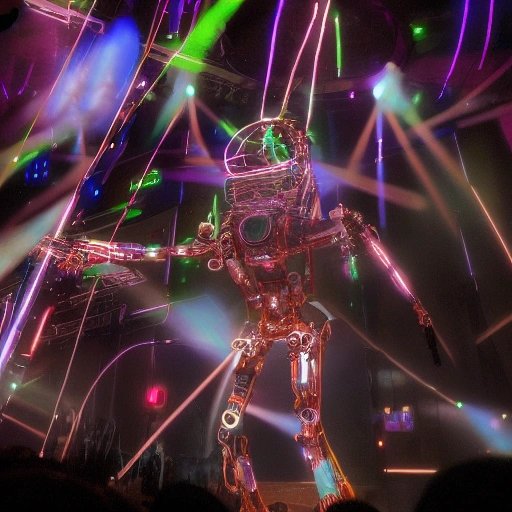The music industry has always been a place for creativity, uniqueness, and originality. But in recent years, it seems that the industry has taken a turn for the robotic, quite literally. With the growing popularity of artificial intelligence and machine learning, it was only a matter of time before the music industry was taken over by these technological powerhouses.
Gone are the days of spending hours in the studio, writing lyrics, and composing melodies. Nowadays, AI algorithms can create catchy tunes in a matter of minutes. And the best part? No royalties to pay! It's no wonder the music industry has been quick to adopt this technology.
But it's not just the songwriting process that has been "optimized" by AI. Robotic performers are taking center stage in music concerts around the globe. Think about it: no more missed notes, no more wardrobe malfunctions, no more diva meltdowns. What's not to love?
But where does this leave human creativity? Is there any place left in the music industry for those who possess these innate artistic abilities? Or are we becoming obsolete, replaced by the cold, efficient algorithms of the future?
It seems that the answer is still up in the air, but one thing is for sure: the AI takeover of the music industry has definitely made for some interesting results. Take, for example, the AI-generated hit song "Daddy's Car". The song has all the hallmarks of a catchy pop tune: a bouncy beat, infectious melody, and lyrics that stick in your head. The only catch? It was completely created by an AI algorithm. No human input required.
And the music video for "Daddy's Car" is just as impressive. Featuring entirely CGI-generated characters, the video is a colorful and whimsical journey through a futuristic cityscape. It's a testament to just how far technology has come in the entertainment industry.
But not everyone is thrilled about the rise of AI in music. Some critics argue that the oversaturation of AI-generated songs and performances will lead to a loss of originality and creativity in the industry. After all, if every hit song and every concert is just a product of an algorithm, where's the artistry?
Others worry about the economic impact of this technological shift. With machines taking over the creative process, will there even be a need for human musicians in the future? And if not, what jobs will be left for us mere mortals?
Despite these concerns, the AI revolution in music shows no signs of slowing down. With companies like Amper Music and the OpenAI Jukebox leading the way, it seems that the future of music is increasingly automated.
But perhaps there's a middle ground to be found. As AI technology continues to develop, maybe it can be used to aid human creativity rather than replace it. Maybe we can use these algorithms to generate new ideas and inspiration, rather than relying on them to do all the heavy lifting.
Until then, we'll just have to keep dancing to the beats of our robot overlords. Who knows, maybe they'll teach us a thing or two about what it means to be creative. But if they start writing articles, it's game over for all of us.
